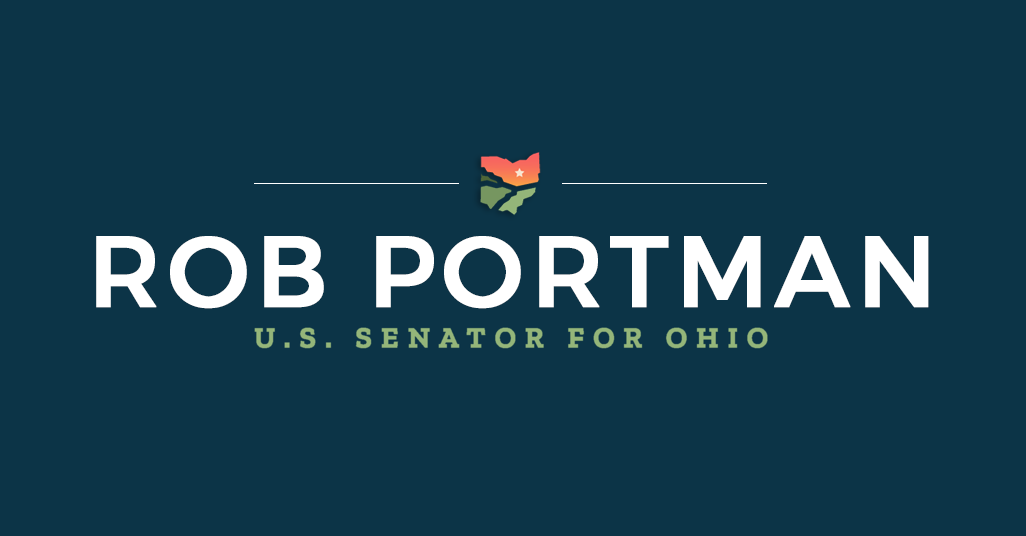Source: United States Senator for Ohio Rob Portman
June 15, 2021 | Portman Difference
During an interview this morning on CNBC’s Squawk Box, Senator Portman provided an update on bipartisan infrastructure negotiations. Portman stressed the importance of focusing on core infrastructure upgrades without imposing tax hikes on hard-working American families.
Last week, Portman joined nine of his colleagues in releasing a statement announcing that an agreement has been reached on a framework for a bipartisan infrastructure bill.
The transcript of the interview can be found below and you can watch the interview here.
PORTMAN ON THE OUTLOOK FOR A BIPARTISAN INFRASTRUCTURE DEAL:
“Well, Becky, I’m optimistic we have a path forward. And you’re right, everybody talks about infrastructure, we always have. You remember President Trump talked about a $2 trillion infrastructure plan and others have talked about it, including President Biden during his campaign. So let’s get this done. I mean, this is about roads and bridges that are crumbling. This is a need out there. And people want an infrastructure bill because they know that this will help our long-term economic growth.
“So I think it’s a good idea. President Biden, unfortunately, started off with a package that was not really about infrastructure. So it’s $2.65 trillion. It’s called the American Jobs Plan. And about 25 percent of it had to do with what we would think of as infrastructure. The rest was for other things, including social programs, including for nursing homes and schools and child care and so on. Some important things, but they shouldn’t be part of an infrastructure package.
“So a group of us sat down, Republican and Democrat alike, and said, ‘How about focusing on a real infrastructure plan and one that doesn’t have the big tax hikes,’ because President Biden’s legislation also had a $2 trillion tax hike, which would hurt the economy as we’re trying to get out from under this pandemic. So that’s what it is. It’s really very simple. It’s focusing entirely on infrastructure. That’s the scope of it. And it’s not paid for with the tax hikes that President Biden had proposed so it won’t have a negative impact on the economy.”
PORTMAN ON WAYS TO PAY FOR INFRASTRUCTURE BILL:
“Well, it’s paid for in a number of different ways. One is to repurpose some of the funding that has gone out the door under COVID-19. Remember, $1.9 trillion was spent earlier this year, much of it not for COVID-19. Some of that would be able to be repurposed. Some of it, as you recall, is coming back because states are not accepting the $300 federal supplement on unemployment insurance. About 25 states have decided they want to send that money back. We can take advantage of that.
“The gas tax hasn’t been adjusted since 1993. So that would be an index based on inflation going forward. And then it’s also got some interesting infrastructure bank proposals in it. In other words, public-private partnerships, as well as allowing local and state governments to take advantage of the leverage the federal government can get from borrowing at lower costs. So the infrastructure bank idea has been out there for a while. It’s been a bipartisan idea.
“So there are ways to fund infrastructure that are different than other funding. It’s much like in the private sector to many viewers. If they have day-to-day expenses, they’re likely to fund it one way. If they have long-term capital expenditures, they’re likely to fund it through the long-term borrowing. And that’s what essentially the infrastructure bank would be. So there are ways to do this, Becky, without hurting the economy and raising taxes.”
PORTMAN ON PROSPECTS FOR WIDESPREAD BIPARTISAN BACKING:
“And by the way, Shelley Capito did a terrific job with the White House in establishing those red lines that, you know, we are not going to be raising taxes on American workers right now and we’re not going to do something that’s not infrastructure. And that’s the basis for our legislation as well. Unfortunately, they weren’t able quite to get to an agreement with the White House, but I think it laid the groundwork for a successful bipartisan approach here.
“I mean, this is a proposal for infrastructure, the Republicans have traditionally supported it. It’s also a proposal without raising income taxes. It’s also a proposal that actually makes sense in terms of the economic growth, the long-term competitiveness of our economy. So I think it’s something that’s going to get a lot of support on both sides of the aisle. And, Becky, what’s so bad about having 30 or 40 on the Republican side and 30 and 40 on the Democratic side coming together? And folks who might not want to support it, you mentioned Senator Sanders – that’s fine. But isn’t that the way Congress ought to work? We look to grow from the middle out.”
###
